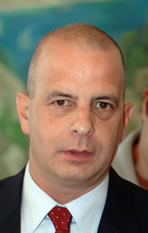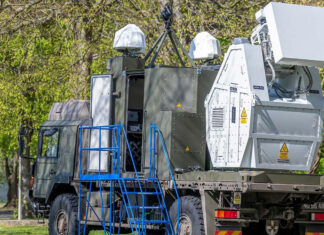
Israel’s security services required time to adjust and develop new and effective countermeasures to combat the new threat of suicide bombers. The results were remarkable: Compared to 452 suicide attacks carried out by the Palestinians in 2003, only two such attacks occurred since 2007. (Read the full article… )
According to Yuval Diskin, Director, Israel Security Agency (ISA – Shin Bet), the winning formula developed by Israel’s security services is based on jointness – the ability of all services to work together, sharing operational concepts (CONOPS), with a clear definition of the combined objective for all the organizations engaged in homeland security and defense. Multidisciplinary intelligence activity, based on advanced technological and human intelligence, tailored and channeled through processing and dissemination, means to turn intelligence from raw data into an operationally valuable, real-time asset. “Operational systems must be adapted and learn to operate as efficiently as possible with such real-time intelligence assets” said Diskin.
Such adaptation is enabled by introducing technological means to improve connectivity, interoperability and joint operations by combined task forces, composed of elements from different organizations, such as ISA, National Police, Army and Air Force. Under such a cooperation umbrella, different organizations must share common counter-terror techniques, tactics and procedures (TTP), optimizing for rapid response, based on real-time intelligence. According to Diskin, the main advantage of the joint-operating concept is by combining the unique capabilities and characteristics of each of the participating organizations. “The main challenge is not integrating the technologies, but overcoming leadership and human nature obstacles” Diskin added. One of the keys to establishing jointness was the setup of inter-service command posts, manned by representatives from all the services and organizations involved in operations.
Diskin considers the legal infrastructure a critical element in the success of Israel’s counter-terror campaign. “It took Israeli lawmakers 14 years to agree on the legal framework for the ISA, until the so-called ‘ISA Law’ was completed in 2002. Once implemented, this legal foundation became instrumental for the success of Israel’s counter-terror campaign.” Said Diskin.
Diskin warns that cyber terrorism is becoming a growing challenge. Since such activities are performed over cyberspace, the location of the perpetrators is irrelevant to their ability to cause harm, get support or access their targets. The global internet provides terrorists with many advantages, including recruitment, indoctrination, and training tools. Terrorist’s cybernetic capabilities also exploit the information services made available for peaceful purposes, such as GPS and geospatial intelligence, real-time communications via Internet, cellular phones or messaging devices, powerful encryption devices etc. These capabilities are added to the determination and willingness of terrorist organizations to carry out ‘mega-terror’ actions, regardless of the casualties or damage they cause.
According to Diskin, successful counter-terror strategy must rely on international cooperation among intelligence agencies, establishing an agreeable legal framework among nations to eliminate potential loopholes that are exploited by terrorists. Formulating cooperation among homeland security and counter-terror organizations from different countries is also imperative, for joint operational capabilities. “The is a growing understanding and openness to these cooperative principles among the countries facing terror threats” Diskin concluded. Read the full article
















